3rd coronavirus wave picking up speed in Serbia: There are ways to prevent it from creating chaos
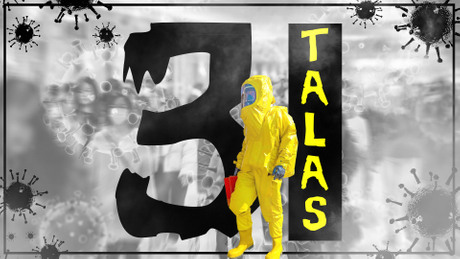
The third wave of coronavirus has began in Serbia, it started last week from Belgrade, and to make sure that this "caravan" does not spread in the most difficult way to the whole country, we can do a lot, instead of letting Covid do as it wants - and it can cause much damage, as we have already seen in July.
How? Respect measures, avoid gatherings
Epidemiologists say that the third wave has come early, that it will be harder because it will last longer, but that the success of the virus transmission, as well as the complications it causes, will directly depend on us.
Masks, distancing, hand disinfection
What we have been repeating for more than 7 months and what everyone knows by now is that we should not get tired of wearing masks, keeping distance, and hand disinfection. Now more than ever this needs to be paid attention to.
Acting director of the Institute of Public Health in Kragujevac, Dr. Dragan Vasiljevic, tells Telegraf.rs that perseverance in the discipline regarding these three anti-epidemic measures is what's up to people.
"Wearing masks, hand disinfection and distancing. According to what we know about coronavirus, it turns out that these three things are the most important," Dr. Vasiljevic told Telegraf.rs.
Avoid all types of gatherings
Parties, celebrations, going out after 11 pm and staying indoors with more than 30 people should be very much so avoided.
Dr. Vasiljevic states that considering that the third wave is picking up speed, any kind of gatherings should be avoided, regardless of whether these are conferences or parties.
"You can see in Belgrade that the third wave has begun. Belgrade is a hotspot. Given that a new wave is starting, we should now avoid gatherings, cafes or staying in any enclosed space with a number of people, which is conducive to the easy spread of the virus. This means that conferences, meetings, festivities of any kind should be avoided in order to reduce transmission, that is, the transmission of the virus from person to person," advises Dr. Vasiljevic.
The season of slavas (celebrations in Serbia of family patron saint feasts) has begun, and epidemiologists recommend that it is best to celebrate only with other family members, or with guests, but while maintaining distance.
Get vaccinated against the flu
The third wave can be alleviated also by vaccination against the flu. It started on October 1 and the vaccine is available for free to all citizens. It is mandatory for healthcare workers, and recommended for chronically ill people, those older than 65, and children with chronic diseases.
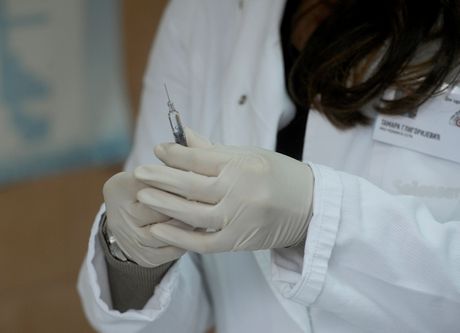
Everyone who wants to get the flu vaccine should just call or see their chosen doctor and say they want to get vaccinated. The doctor will schedule an appointment when the patient can come to receive this type of protection against the flu virus.
What's important is that the person who receives the vaccine must be healthy at that moment, and the doctor will certainly assess that.
This year, Serbia procured a quadrivalent flu vaccine for persons older than 3 years, while the Torlak Institute produced a trivalent vaccine for persons aged 6 to 36 months.
"The quadrivalent (seasonal) vaccine, in addition to the AH1N1 type of influenza virus, contains AH3N2 and two types of influenza B virus. This is in accordance with the WHO recommendations for the northern hemisphere and the EU decision for the 2020/2021 season, based on the dominant types of influenza viruses registered in circulation in the previous season in the northern hemisphere," said the Batut Institute of Public Health of Serbia.
Boost immunity, take walks in the wood, by the river, lake
Doctor Vasiljevic, who is also a specialist in hygiene and medical ecology and a nutritionist, says that the first line of defense, which, in fact, should be our daily lifestyle, can be a diet rich in fruits, vegetables, fish, lean meats and dairy products made through fermentation such as yogurt, soured milk and kefir.
"You should eat at least 400 grams of vegetables a day, and at least 300 grams of fruit. Maybe more but not less. That's for adults. Children will eat less. In this way, a certain amount of vitamins is taken in and, very importantly, a large amount of antioxidants, which are important in protecting and strengthening the immune system. Eat fruit 3, 4 hours after a meal, at lunch time.

"In addition, you should eat 90 to 150 grams of meat a day. The best are less fatty meats, chicken, turkey, white meats are the best, they have the least fat, but other kinds can also be eaten - beef, veal, but without the skin, which contains only cholesterol. Fish is very desirable, because it has omega 3 fatty acids which are excellent for immunity, and tuna and sardines can also be used. In the fight against coronavirus, dairy products have shown themselves very well, especially yogurt, soured milk and kefir, which are made through fermentation, and contain probiotics and amino acids valuable in boosting immunity. And, homemade soups, of course," advises Dr. Vasiljevic and reminds of the golden rule of five meals a day, three main ones and two snacks, with three to four hours between each.
He points out that taking walks should not be neglected, and explains why.
"We all forget, especially now in the time of coronavirus, to walk in the fresh air. It is necessary to walk moderately, for the experience to be pleasant, in a park, next to a lake, a river, that's how oxygen is brought in with negative ions and ozones that strengthen immunity. They are especially present after it rains, snows, thunders, then you should go out for a walk and accumulate them," says our interlocutor.
We will not have more than 200 new cases a day
Dr. Predrag Kon, an epidemiologist and a member of the Crisis HQ combating coronavirus, said yesterday that Belgrade had entered the third wave last week. According to him, it's hard to believe that this will stop and return to the situation from a few weeks ago, adding that an increase in Covid activity is expected in the coming period.
"During the next few days, it is expected that the number (of new daily cases) will be in the three digits, but below 200," he told RTS.
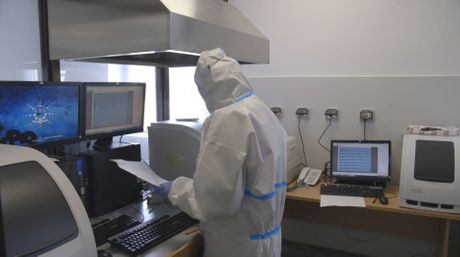
The wave will last longer
Considering that the third wave is hitting us in the coldest season, which is exceptionally favorable for the survival of the virus due to high humidity and people staying indoors, this wave will last longer than the previous two, Professor Dr. Branislav Tidorovic, an epidemiologist and member of the Crisis HW, tells Telegraf.rs.
"Since the weather turned colder, which suits the virus, as well as humidity due to the rain, this week will be our test. If it goes well, it will be good. Our problem will be November and December, January and February. Winter months, snow, humidity, people indoors - all this is suitable for the virus to spread. Now, in October, we will have Indian summer. These two cold days will pass, so we will have better weather again. But, when we enter November and December, January, February, those will be the months that will be problematic due to staying indoors.
The third wave will, therefore, last longer than the first and second, but it should not be more difficult. Because if we implement the measures and if we try to implement them as much as possible, both in the city transport and in collectives, then the situation will not be more difficult than in July. In that case, this wave will be under control," Professor Dr. Tiodrovic said for our portal.
Some schools to hold online classes in November
Minister of Education, Science and Technological Development Mladen Sarcevic said yesterday that they are ready for any scenario if the epidemiological situation worsens.
Dr. Predrag Kon said that coronavirus has been found in 25 schools, but that classes will not be suspended in all of them, however, if there is need for only a few to do that, they will switch to online classes in some areas.
"The virus is circulating, but we are monitoring it well. If we do not succeed in that way, then we must think about some restrictive measures, but not about a state of emergency," Dr. Kon stressed.
Kindergartens will not shut down?
Parents whose children attend kindergartens are also worried, although the situation is under control there as well. Sanitary inspectors, as we reported, checked the work of 87 preschool institutions in September and in the first week of October, and found that preventive measures are being respected.
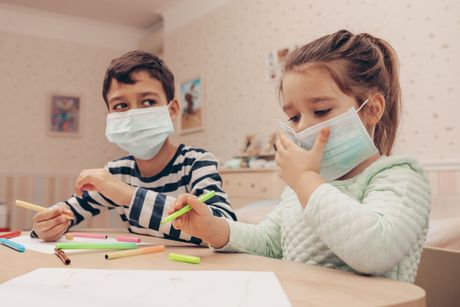
Slavko Gak, the secretary for education and child protection in the City of Belgrade, told the daily Blic that sporadic cases have been appearing in kindergartens, but that nothing got out of control.
He also said that after the state of emergency ended there was no need to close kindergartens.
"We've already gone through all that once and the procedures are clear if there is a need for that, and we hope that there won't be," Gak explained.
If you are returning from abroad, take a self-assessment test
If you are coming from abroad, especially from Montenegro, Croatia, Bosnia and Herzegovina, Albania, but also any other country where coronavirus is flaring up, it's a good idea to apply for a ten-day supervision that was introduced on September 18 in Serbia, and take a self-assessment test as part of it.
The test can be found at www.e-zdravlje.gov.rs. When you do the test, you quickly get an answer as to whether you are suspected of having corona, or whether you should report to a Covid clinic for further analysis. Read more about how this supervision works here.
Report non-compliance
In suppressing corona, it is of great importance to respect epidemiological measures indoors, especially in hospitality industry facilities and in transportation, where they are most often violated.
Sanitary inspectors are checking these places, and from Thursday, citizens can help them by reporting violations of via Viber by calling 064 8811 405.
Do not hesitate to visit a Covid clinic and get tested
If you have symptoms of coronavirus you should not try to cure yourself, but should instead report to a Covid clinic as soon as possible, and get tested if your doctor decides so.
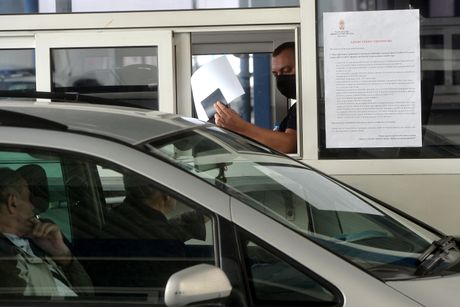
In Serbia, PCR tests are done by taking samples from the nose and throat, which are reliable in 99 percent of cases. Rapid serological tests from blood samples are also available, whose reliability is around 50 to 60 percent.
Symptoms of coronavirus
The new coronavirus that appeared in 2019 is officially called SARS-CoV-2. It was discovered in China at the end of 2019. It is a new strain of coronavirus, which was not present in humans before.
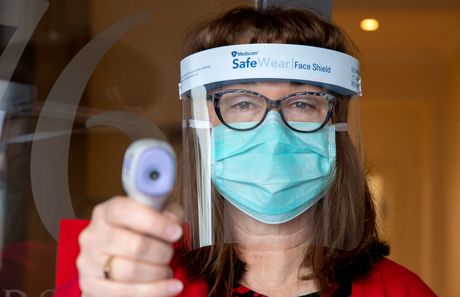
The virus is mainly transmitted through droplets, sneezing and coughing, but there are more and more studies that say it survives for a long time in the air. Preliminary research indicates that the average incubation period is 5-6 days, with a maximum period of up to 14 days.
Although people are most contagious when they have the symptoms, there are indications that some people can transmit the virus even though they have no symptoms or before the symptoms appear, which is not uncommon with other viral infections.
Symptoms of coronavirus include fever, cough, difficulty breathing, muscle aches and fatigue. In severe cases, the disease develops into serious pneumonia, acute shortness of breath syndrome, sepsis and septic shock, which can cause a patient's death.
Video: Kon: Epidemiological situation in Serbia is deteriorating, especially in Belgrade
(Telegraf.rs)
Video: Pozorištance Puž proslavilo rođendan premijerom predstave "Princeza na zrnu graška"
Telegraf.rs zadržava sva prava nad sadržajem. Za preuzimanje sadržaja pogledajte uputstva na stranici Uslovi korišćenja.

